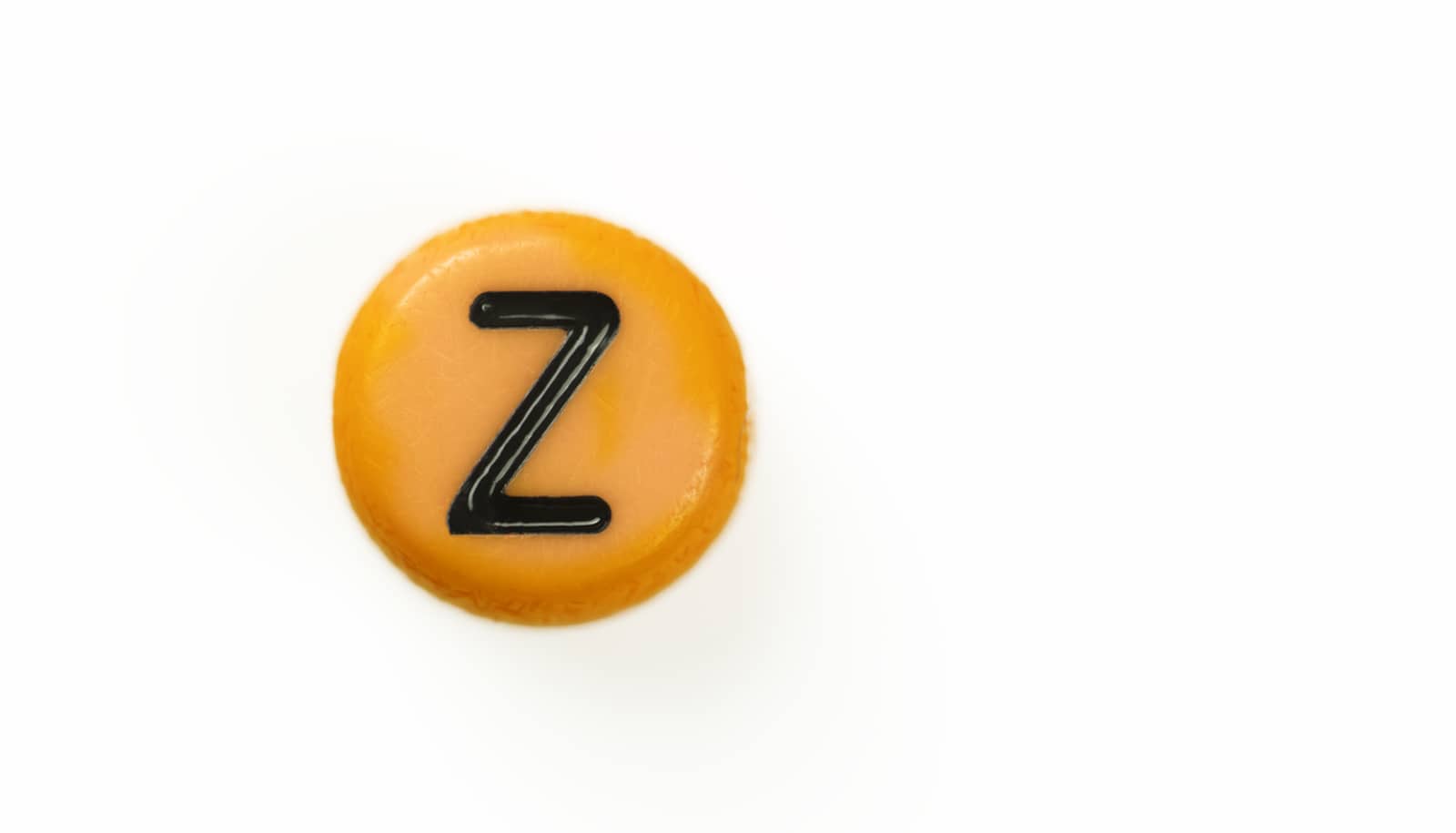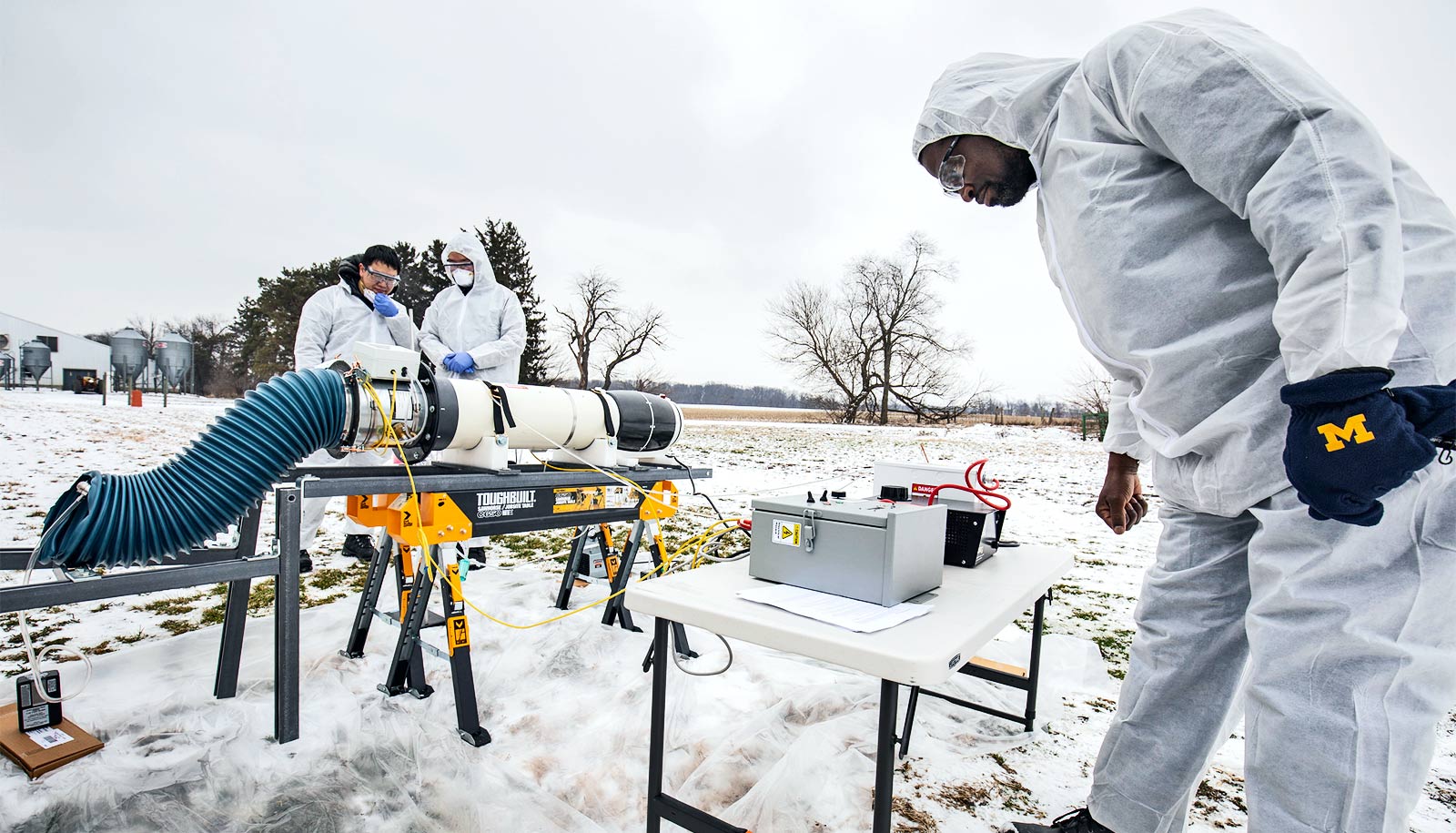Zinc ion plays a crucial regulatory role in the sperm capacitation process, or series of changes sperm undergo in the female reproductive tract that allow them to fertilize an egg.
The researchers examined zinc-interacting proteins of sperm collected from a fertile male pig at the university’s National Swine Resource and Research Center.
“We found that there were nearly 1,800 proteins in the sperm that were interacting with zinc ions, from which we deduced that zinc must serve as a master-regulator of various processes happening within the sperm to facilitate the recognition and binding of the male and female sex cells, which enables fertilization,” says Michal Zigo, a research scientist at the University of Missouri College of Agriculture, Food, and Natural Resources (CAFNR).
Zinc keeps sperm in the non-capacitated state in which they cannot fertilize a female egg. However, if the zinc is released from the sperm and the capacitation process occurs prematurely during artificial insemination, a common fertility method that many livestock farmers use to promote reproduction among their animals, the sperm cells will “burn out” and die before reaching the egg. This makes the process is very delicate and time-sensitive.
Peter Sutovsky, a professor of animal sciences and in the department of obstetrics, gynecology, and women’s health at the University of Missouri School of Medicine, says that analyzing zinc levels in the sperm of male pigs can help pork farmers make better informed decisions about which pigs would be most useful in the artificial insemination process. Boosting each swine litter by just one piglet would increase the income of United States pork farmers by $130 million per year.
“By analyzing the regulatory role zinc plays in sperm cells, we can potentially learn clues about the brief time window for when sperm might have the best chances of successful fertilization,” Zigo says. “Anything we can do to extend that brief window of opportunity for when sperm can successfully fertilize female eggs can positively impact fertility management for animals and potentially human infertility therapy as well.”
Zinc is a vital nutrient for the human body, as zinc deficiencies can cause malnutrition and developmental defects. However, too much zinc can potentially lead to poisoning.
“This research can help us better understand how zinc deficiencies affect infertility in males,” says Sutovsky. “For artificial insemination in livestock animals, the zinc-rich seminal fluid typically gets diluted beforehand, so our research shows that premature dilution may trigger premature capacitation, which causes the sperm to burn out and die. Therefore, by supplementing liquid zinc back into the sperm, we can potentially optimize the preparation of sperm for artificial insemination and increase successful fertility outcomes for livestock farmers.”
In addition to better understanding the role zinc plays as a key regulator of sperm function, the researchers also found that the same proteins involved in biological pathways linked with neurodegenerative diseases, such as Huntington’s disease and Parkinson’s disease, were abundantly populated in the sperm as well.
“The discovery of this unexpected similarity between the brain and reproductive system was surprising, and by setting these foundations, researchers can further investigate these mechanisms going forward,” Zigo says.
As a result, sperm cells could become a non-traditional model to study and manage neurodegenerative diseases.
A paper on the findings appears in the journal Communications Biology. Funding for the study came from the Animal Reproduction Program of the United States Department of Agriculture’s National Institute of Food and Agriculture and CAFNR.
Source: University of Missouri



